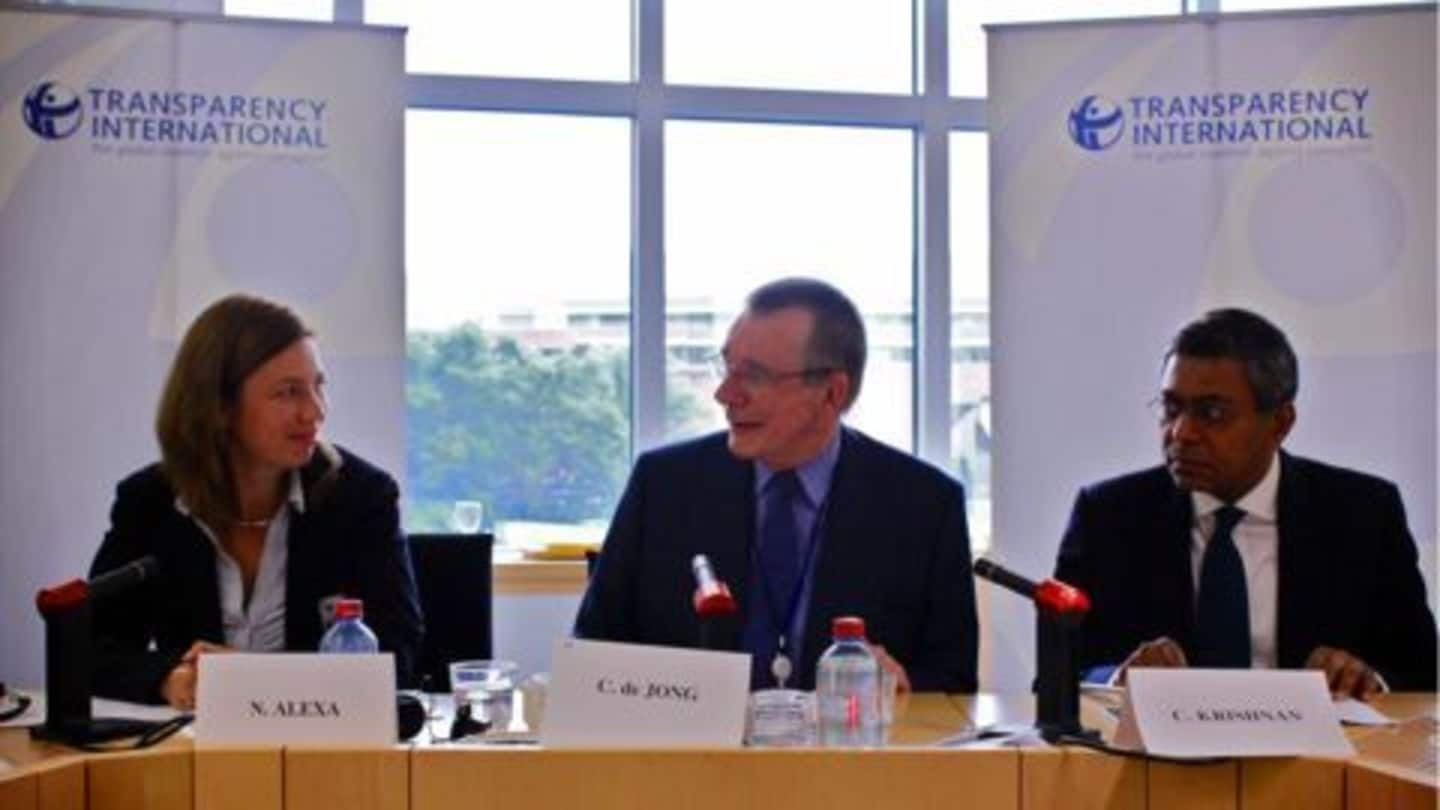
Indian firms lead the way in Transparency International's survey
What's the story
Transparency International released a survey in which India has been named the most transparent country with respect to firms or companies while China the most opaque. About 100 firms in 15 nations, including Russia, Brazil, and Mexico among others were surveyed. All 19 Indian firms surveyed scored 75% in being more transparent about company structures, holdings, etc. that were attributed to India's Companies Act.
Introduction
What is Transparency International?
Transparency International is a Germany-based NGO that was founded by Peter Eigen, a former World Bank official, in 1993. In the 1990s, when corruption was on the rise, and there was no method to curb it, Eigen founded Transparency International with nine allies to measure corruption and prevent crime on the global scale. It is headquartered in Berlin and has over 100 branches globally.
Quote
Transparency International on Indian firms
In its report, Transparency International (TI) stated: "In India, the Companies Act requires firms to disclose key financial information on all subsidiaries wherever they are located, resulting in Indian companies achieving the strongest score (75% or more) in this dimension."
China
Chinese companies the most opaque
Transparency International's survey found that Chinese firms fared the worst; the average score of the 37 Chinese companies surveyed was as low as 1.6 out of 10 in the tests. The German NGO cited reasons like having very weak or non-existent corruption procedures and policies for the low score obtained by Chinese firms. Chinese firms formed the survey's biggest group, but also had the worst overall performance.
Quote
Very weak Chinese results
Transparency International's statement in its press release: "The very weak Chinese results stem from weak or non-existent anti-corruption policies and procedures, or a clear failure to disclose them in line with international practice."
India vs China
Indian firms dominate the top spots
All Indian companies dominated the list; on the other hand, Chinese companies dominated the bottom 25 spots. Indian firm Bharti Airtel topped the list with a 7.3 score out of 10; six conglomerate Tata businesses and tech giant Wipro succeeded Airtel. Three Chinese firms scored zero: Chery, Galanz, and Wanxiang Group; ZTE was the only Chinese company to enter the top 25 spots.
Data
Overall score slipped since the last suvey
Transparency International stated that since the last Transparency in Corporate Reporting survey (released in 2013), the overall transparency score of firms slipped globally. The latest average score of all surveyed companies is 3.4 while over three-quarters of companies scored less than 0.5.
MNCs, Emerging Markets
MNCs need to do more to fight corruption
Transparency International found the results were "pathetic"; an immediate need for large multinational companies to contribute more to fight corruption was highlighted. Failure of the majority of firms to operate transparently increased the risk of creating a corrupted environment in their businesses as well as nations. Corruption in emerging markets, which account for over 70% of global growth, hampers growth and limits socio-economic progress.
Anti-Corruption Programmes
Three different ways to address corruption
Transparency International survey took three different ways into consideration through which firms could address corruption. Firstly, companies should implement anti-corruption policies to ban facilitation payments or bribes. Secondly, details of all its subsidiaries, structures, etc. and other important information should be disclosed by a company. Thirdly, firms should also disclose key financial information, such as tax payments, in each individual nation where they operate.